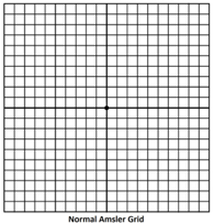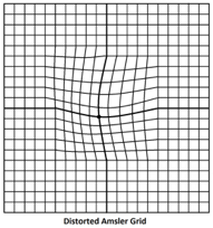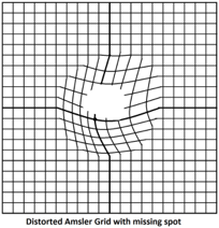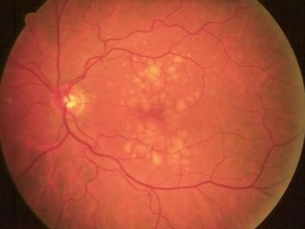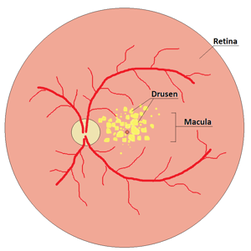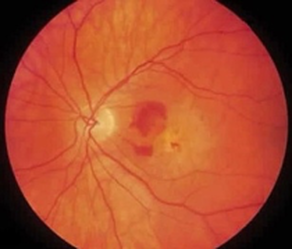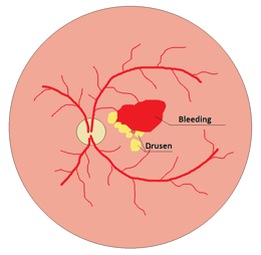Macular Degeneration
Macular degeneration is the leading cause of blindness in Americans over the age of 65. It results from changes to the macula, which is part of the retina. The retina is the light sensitive tissue that lines the back of the eye, and the macula is the portion of the retina that is responsible for clear, sharp vision, and is located at the center of the retina.
Symptoms of macular degeneration are subtle at first, but include:
- A gradual loss of ability to see objects clearly
- Distorted vision
- A gradual loss of color vision
- Dark or empty areas appearing in the center of vision
If you experience any of these, contact our office immediately for a comprehensive examination. It is a good idea to monitor an Amsler Grid daily or weekly for any changes in central vision. If any lines appear distorted or missing see your eye doctor as soon as possible.
Macular degeneration is divided into two types: a dry and a wet form. Most people with macular degeneration have the dry form, which is less likely to lead to severe vision loss. There is no known treatment for the dry form of macular degeneration, but specific combinations of vitamins have been shown to slow the progression of the disease.
Dry Macular Degeneration
Wet macular degeneration is the less common form of the disease and is the more advanced form of the disease that can lead to severe vision loss. Fortunately there are treatments for wet macular degeneration. The wet form may respond to laser procedures, as well as certain medications, if diagnosed and treated early.
Wet Macular Degneration
In cases where vision is decreased or when treatment has not been successful, the vision that is lost to macular degeneration cannot be restored. However, there are specialized optical devices (called low vision devices), such as telescopic and microscopic lenses that can be prescribed to make the most out of remaining vision.
There are some things that you can do to prevent macular degeneration, including:
- A healthy diet
- Low salt intake
- Eating plenty of green leafy vegetables, such as spinach, cabbage, kale, turnip greens, etc.
- Eating brightly colored vegetables, such as beets, carrots, etc.
- Wearing sunglasses when outside
- No smoking (smoking is the single biggest risk factor for macular degeneration)


